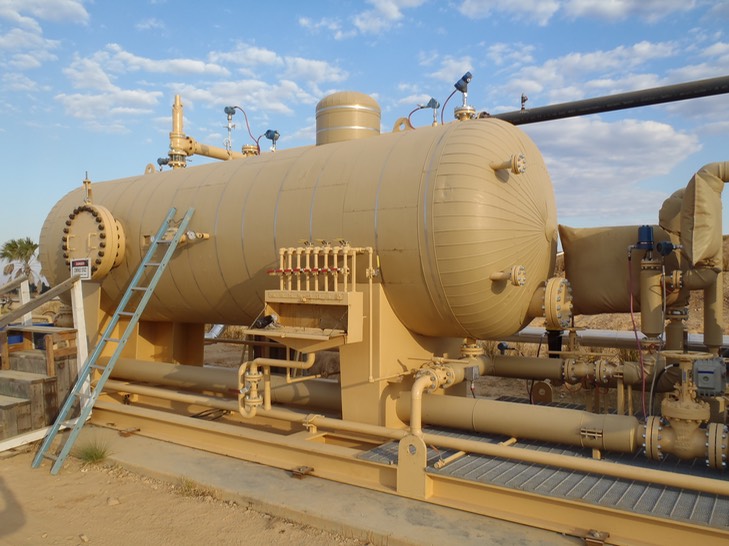Commissioning Operator Interview Questions & Answers
What are the roles and responsibilities of a Commissioning Operator?
He is responsible for the preparation of the pre-commissioning and commissioning activities. His objective is to deliver the works at Provisional Turn Over, i.e. including pre-commissioning and to coordinate the assistance to the Client for commissioning.The Process by which an equipment, facility, or plant (which is installed, or is complete or near completion) is tested to verify if it functions according to its design objectives or specifications.

What are the duties of a Commissioning Operator?
- To ensure that the project safety regulations are applied in his area of responsibility in order to maintain an accident-free environment.
- To support the Site Construction Manager for the update of the pre-commissioning schedule driving completion priorities.
- To ensure that the proper resources (personnel, equipment, consumables, temporary facilities) are mobilized and deployed for the timely execution of all pre-commissioning activities,
- To manage the pre-commissioning activities executed in self-performance and to supervise the activities executed by sub-contractors.
- To assist the Subcontracting Team for the preparation of specialized subcontracts.
- To coordinate with the Field Engineering Team for the resolution of all technical issues raised in the field.

What are your aspirations behind this commissioning job?
Don’t fall into the trap of specifying job titles. Stick to natural progression. If you don’t seem too interested in what lies beyond this job, the interviewer will fear that you wont stick around for long.A sample answer could be that you are aware that there are several skills required for the job that you need to develop on, but you believe that your own motivation for self improvements, will be developed by the time an opportunity arises. That is why you are determined to learn.
Tell me a suggestion you have made that was implemented in this commissioning field?
It's important here to focus on the word "implemented." There's nothing wrong with having a thousand great ideas, but if the only place they live is on your notepad what's the point? Better still, you need a good ending. If your previous company took your advice and ended up going bankrupt, that's not such a great example either. Be prepared with a story about an idea of yours that was taken from idea to implementation, and considered successful.
What experience do you have in this commissioning field?
Hopefully if you're applying for this position you have bags of related experience, and if that's the case you should mention it all. But if you're switching careers or trying something a little different, your experience may initially not look like it's matching up. That's when you need a little honest creativity to match the experiences required with the ones you have. People skills are people skills after all, you just need to show how customer service skills can apply to internal management positions, and so on.
What is your greatest weakness?
This is a challenging question -- as if you have no weaknesses you are obviously lying! Be realistic and mention a small work related flaw. Many people will suggest answering this using a positive trait disguised as a flaw such as "I'm a perfectionist" or "I expect others to be as committed as I am." I would advocate a certain degree of honesty and list a true weakness. Emphasize what you've done to overcome it and improve. This question is all about how you perceive and evaluate yourself.
What challenges are you looking for commissioning operator position?
A typical interview question to determine what you are looking for your in next job, and whether you would be a good fit for the position being hired for, is "What challenges are you looking for in a position?" The best way to answer questions about the challenges you are seeking is to discuss how you would like to be able to effectively utilize your skills and experience if you were hired for the job. You can also mention that you are motivated by challenges, have the ability to effectively meet challenges, and have the flexibility and skills necessary to handle a challenging job. You can continue by describing specific examples of challenges you have met and goals you have achieved in the past.
Have you ever had a conflict with a boss or professor? How was it resolved?
Note that if you say no, most interviewers will keep drilling deeper to find a conflict. The key is how you behaviourally reacted to conflict and what you did to resolve it. For example: “Yes, I have had conflicts in the past. Never major ones, but there have been disagreements that needed to be resolved. I've found that when conflict occurs, it helps to fully understand the other person’s perspective, so I take time to listen to their point of view, and then I seek to work out a collaborative solution. For example . . .” Focus your answer on the behavioural process for resolving the conflict and working collaboratively.
What do you know about us?
Follow these three easy research tips before your next job interview: 1) Visit the company website; look in the “about us” section and “careers” sections 2) Visit the company’s LinkedIn page (note, you must have a LinkedIn account — its free to sign up) to view information about the company 3) Google a keyword search phrase like “press releases” followed by the company name; you’ll find the most recent news stories shared by the company Remember, just because you have done your “homework”, it does not mean you need to share ALL of it during the interview! Reciting every fact you’ve learned is almost as much of a turn off as not knowing anything at all! At a minimum, you should include the following in your answer: 1. What type of product or service the company sells 2. How long the company has been in business 3. What the company culture is like OR what the company mission statement is, and how the culture and/or mission relate to your values or personality
Why do you want to work with us?
More likely than not, the interviewer wishes to see how much you know about the company culture, and whether you can identify with the organization’s values and vision. Every organization has its strong points, and these are the ones that you should highlight in your answer. For example, if the company emphasizes on integrity with customers, then you mention that you would like to be in such a team because you yourself believe in integrity. It doesn’t have to be a lie. In the case that your values are not in line with the ones by the company, ask yourself if you would be happy working there. If you have no issue with that, go ahead. But if you are aware of the company culture and realize that there is some dilemma you might be facing, you ought to think twice. The best policy is to be honest with yourself, and be honest with the interviewer with what is it in the company culture that motivates you.
Why should the we hire you?
This is the part where you link your skills, experience, education and your personality to the job itself. This is why you need to be utterly familiar with the job description as well as the company culture. Remember though, it’s best to back them up with actual examples of say, how you are a good team player. It is possible that you may not have as much skills, experience or qualifications as the other candidates. What then, will set you apart from the rest? Energy and passion might. People are attracted to someone who is charismatic, who show immense amount of energy when they talk, and who love what it is that they do. As you explain your compatibility with the job and company, be sure to portray yourself as that motivated, confident and energetic person, ever-ready to commit to the cause of the company.
What kind of salary do you need?
A loaded question. A nasty little game that you will probably lose if you answer first. So, do not answer it. Instead, say something like, That’s a tough question. Can you tell me the range for this position? In most cases, the interviewer, taken off guard, will tell you. If not, say that it can depend on the details of the job. Then give a wide range.
Do you have any questions to ask us
Never ask Salary, perks, leave, place of posting, etc. regarded questions. Try to ask more about the company to show how early you can make a contribution to your organization like “Sir, with your kind permission I would like to know more about induction and developmental programs?” OR Sir, I would like to have my feedback, so that I can analyze and improve my strengths and rectify my shortcomings.







